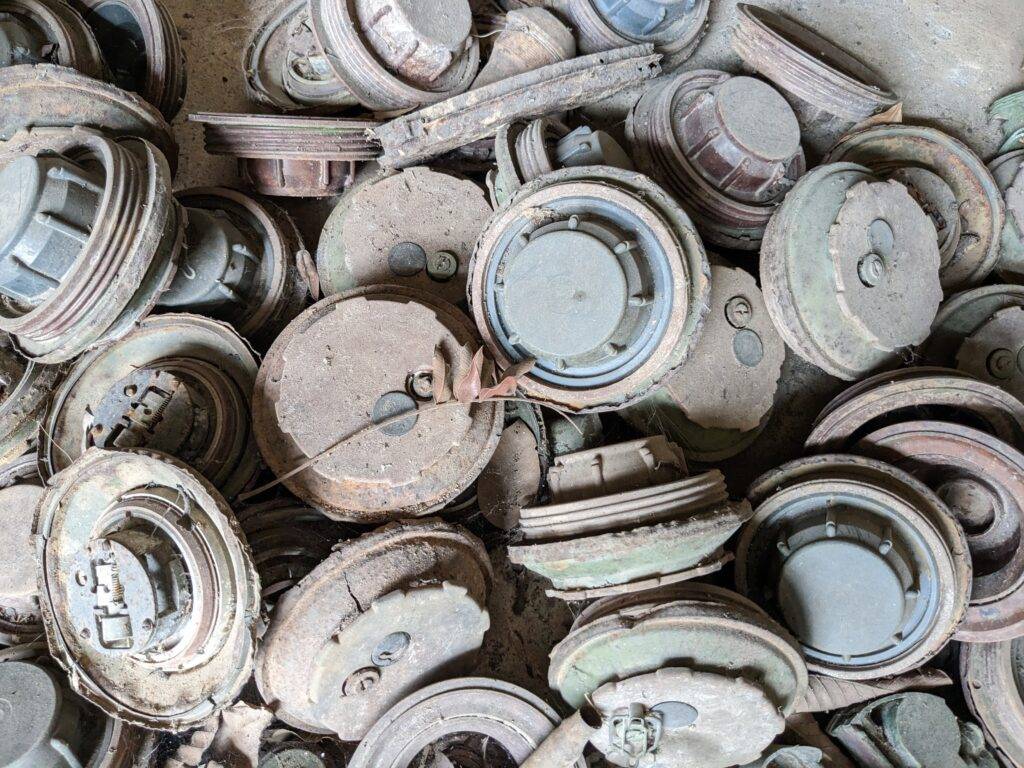Finland’s Prime Minister Petteri Orpo declared that the nation intends to withdraw from the Ottawa Convention, the international treaty banning anti-personnel landmines. Poland, Lithuania, Latvia, and Estonia have recently announced similar intentions, citing escalating security threats from Russia.
“Withdrawing from the Ottawa Convention will allow us to prepare for changes in the security environment in a more versatile way,” Orpo stated, emphasizing the need for enhanced defensive capabilities along Finland’s extensive 1,340-kilometer border with Russia.
Superpowers Never Signed
The Ottawa Treaty, formally known as the Convention on the Prohibition of the Use, Stockpiling, Production, and Transfer of Anti-Personnel Mines and on their Destruction, was adopted in 1997 and came into force in 1999. Its primary objective is to eliminate the use of landmines worldwide due to their indiscriminate nature and long-term dangers to civilians. As of March 2025, 165 countries have ratified the treaty; however, notable military powers, including the United States, China, and Russia, remain non-signatories.
Finland’s Evolving Stance
Finland’s relationship with the Ottawa Treaty has been complex. Initially hesitant, Finland acceded to the treaty in 2012, becoming the last European Union member to do so. This decision was influenced by domestic debates balancing humanitarian concerns against national security needs. The Finnish Defence Forces viewed landmines as a cost-effective means of territorial defence, particularly given the country’s long border with Russia. Despite joining the treaty, discussions about its suitability persisted, especially in light of regional security dynamics.
Regional Shifts: Baltic States and Poland
The Baltic states and Poland have also reassessed their commitments to the Ottawa Treaty. On March 18, 2025, the defence ministers of Estonia, Latvia, Lithuania, and Poland jointly announced their intention to withdraw from the convention. They cited the deteriorating security situation along NATO’s eastern borders and the need for flexible defence strategies as primary reasons. While emphasizing adherence to international humanitarian law, these nations stressed the necessity of preparing for potential threats from Russia.
Russia’s Landmines in Ukraine
Russia has consistently refrained from joining the Ottawa Treaty, maintaining that landmines are a legitimate defensive tool. During its invasion of Ukraine, reports indicated that Russian forces employed landmines extensively, raising international concerns and highlighting the ongoing relevance of such weapons in modern conflicts. This stance contributes to the security apprehensions of neighbouring countries, prompting them to reconsider their positions on the treaty.
Next, Britain?

Finland’s announcement has elicited varied responses from the international community. Advocacy groups dedicated to the elimination of landmines have expressed concern, arguing that such withdrawals could undermine global efforts to eradicate these weapons and compromise civilian safety. Conversely, defence analysts suggest that in the face of evolving security threats, nations must adapt their defence postures accordingly. The UK’s former Defence Secretary Ben Wallace, for instance, has advocated for Britain to reconsider its commitment to the landmine ban, highlighting the need to address contemporary security challenges effectively. The British media were quick to remind that the global landmine ban was championed by Princess Diana.
As Finland and its regional allies navigate these complex decisions, the balance between upholding international humanitarian commitments and ensuring national security remains a contentious and evolving debate.
Read More:
- AP News: Poland and Baltic states recommend leaving antipersonnel land mine treaty, citing threat from Russia
- The Baltic Times: Finland’s decision boosts region’s desire to withdraw from Ottawa Convention – minister
- FT: Baltic states and Poland propose exit from anti-landmine agreement
- The Baltic Sentinel: Baltic States and Poland Withdraw from Ottawa Treaty on Anti-Personnel Mines, Finland Still Considering
- Yahoo News/Reuters: PM says Finland will quit landmines ban treaty
- The Sun: LANDMINE SHOCK Former defence sec Ben Wallace urges Britain to WITHDRAW from global landmines ban championed by Princess Diana
- Wikipedia: Ottawa Treaty
- NDR: From Shield to Sword: The Offensive Potential of Modern Landmines
- NDR: Landmines: From Crow’s Feet to Biomimetics
- NDR: Footwear at the Frontline: Innovations in Anti-Mine Protection

